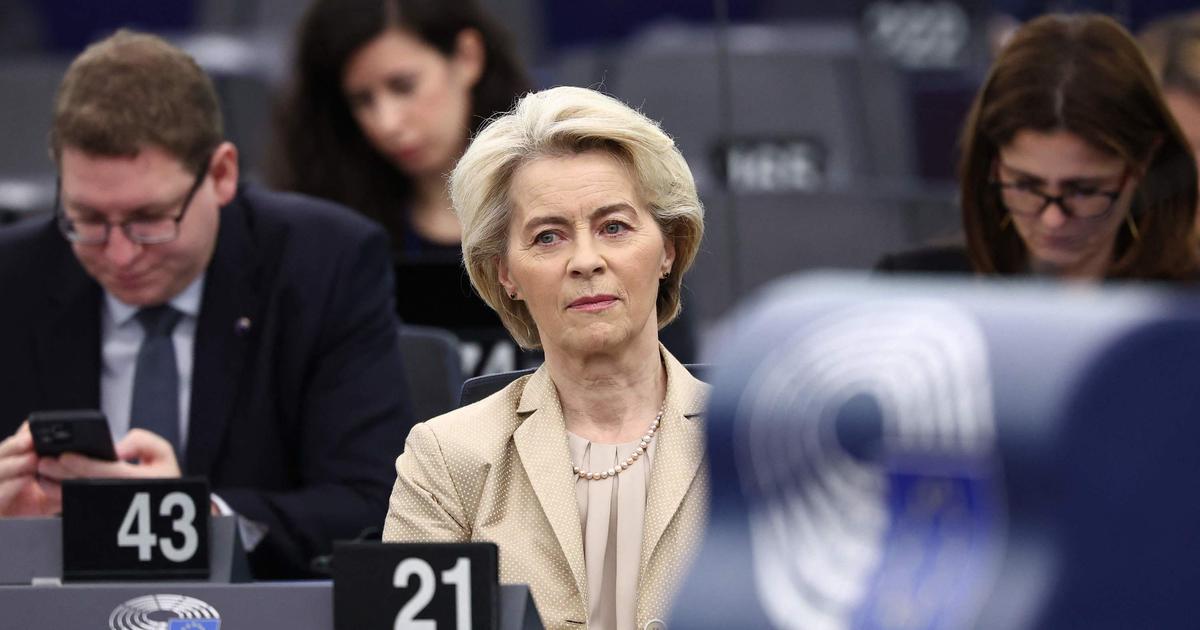There is already a huge hole in the balance sheet, and losses from the natural gas business are climbing to new heights every day.
Only the loans from the state bank KfW are keeping the badly hit energy supplier Uniper alive.
It is no more than an interim solution, the situation is hopeless without additional help from the state.
The general meeting this Monday should pave the way for nationalization.
Equity grants of up to 33 billion euros are planned, which will make the federal government practically the sole owner.
Helmut Buender
Business correspondent in Düsseldorf.
Follow I follow
"The alternative to the proposed stabilization measures would be insolvency," warns Uniper in the invitation.
After a record loss of 40 billion euros in the first nine months of this year, the balance sheet shows a deficit of around 29 billion euros.
There are "no other options" and without the rescue package, the shareholders face a total loss, warns CEO Klaus-Dieter Maubach in his previously published speech.
“Expect that there will be conditions”
Actually, there should be an initial cash injection of eight billion euros immediately after the expected approval by the general meeting, with further billions to follow before the end of the year.
But not only the shareholders have to agree to the rescue plan, the approval of the EU Commission was still pending.
Although it gave the merger approval on Friday, it still has to examine state aid.
This could shake the schedule, because "the implementation of the stabilization measures is subject to various conditions precedent," as Uniper explains.
And one of them is the Commission's approval under state aid law.
Maubach expects the Commission to make its approval dependent on the sale of individual businesses.
"Of course we expect that there will be conditions," he said in an interview with the Reuters news agency at the weekend.
That is normal with such procedures, but Uniper hopes “that the requirements are not too drastic”.
Initially, there was speculation that the Commission could demand the sale of power plants in the Netherlands.
It is also conceivable that Uniper would have to sell its stake in nuclear power plants in Sweden.
Both business areas are making good profits and are offsetting at least part of the losses from gas trading.
Uniper covers a third of Germany's gas supply.
Several hundred municipal utilities and numerous industrial companies are supplied.
The largest shareholder in Uniper is the Finnish state-owned company Fortum.
In several steps, he took over 78 percent of the supplier, which was spun off from Eon a few years ago, and invested more than six billion euros in it.
His shares are now going to the federal government for almost half a billion euros.
This also frees Fortum from its credit risks: A shareholder loan of EUR 4 billion to Uniper and a guarantee line of another EUR 4 billion are to be completely replaced.
The new balance of power is reflected in the new appointments to the supervisory board, which was previously dominated by Fortum.
The federal government is sending Jutta Dönges, until October managing director of the finance agency and responsible for the economic stabilization fund, and energy law expert Ines Zenke.
While Fortum pulls its head out of the noose, the minority shareholders are suffering from the deal: Uniper shares have lost more than 90 percent of their value within a year and are currently trading at less than 3 euros.
The federal government pays EUR 1.70 for new shares from the capital increase and becomes the master of the house with around 99 percent.
A subscription right for the minority shareholders is excluded, and there should also be no squeeze-out.
"This situation hurts, but there are no other options," said the CEO in the previously published speech.
In addition to the immediate capital increase of 8 billion euros, the rescue plan includes approval for further capital injections of up to 25 billion euros to absorb the losses threatened in the coming years.
This part of the package replaces the originally planned gas surcharge, from which Uniper had hoped to generate additional income of 23 billion euros.
"A significant part of Germany's gas bill is now paid from tax revenue - and not via a gas levy," Maubach described the marshalling yard.
The additional funds are to be released depending on the financial situation and needs, a first tranche of probably 6 billion euros by the end of the year.
The loss projections show what could lie ahead.
At the end of November, the shortfall was 12 billion euros, and by the end of the year Maubach expects 14 billion euros.
According to a forecast, there is a gap of 30 billion euros by the beginning of 2024.
With every cubic meter of gas, the company burns money.
Because the Russians no longer deliver, Uniper has to buy on the world market at much higher prices.
On peak days, 200 million euros are lost.
In addition to the "replacement procurement" of natural gas, the security payments for energy trading, which are skyrocketing with the prices, are also increasing: around 6 billion euros currently have to be covered by emergency loans from KfW and the Fortum Group.









